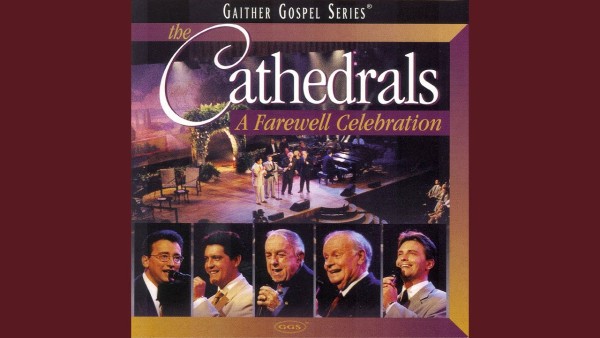The pulsing rhythm of Afrobeat music was born in the sweaty nightclubs of Lagos. But from its inception, the genre was destined to defy boundaries and limits. Like a wildfire spreading across the globe, Afrobeat has ignited passion in listeners from New York to Nairobi, London to Lagos.
With its infectious rhythm, socially engaged lyrics and unstoppable energy, Afrobeat has become a force to be reckoned with, refusing to be confined to geographical, cultural or genre classifications.

Today, Afrobeat is the soundtrack to a global movement, uniting people from all continents and cultures in a common love of music, resistance and the celebration of African heritage.

The 1960s and 1970s saw the emergence of Afrobeat, a revolutionary genre that fused traditional Yoruba rhythms with the improvisational flair of jazz, the melodic richness of Highlife and Fuji, and the infectious energy of funk. Nigerian music icon Fela Kuti was the mastermind behind this innovative sound, which not only showcased his extraordinary talent but also reflected his passionate engagement with postcolonial African politics.
“A certain Viano Dee called Fela Kuti the king of Afrobeat. One thing that stands out when talking about Afrobeat is the West African groove, you can’t miss it”
Fela’s groundbreaking recordings of the 1970s shook the Nigerian music scene and quickly resonated with listeners around the world, cementing his status as a global musical legend and a powerful voice for social change.
The roots of Afrobeat date back to 1920s Ghana, where musicians began to fuse local rhythms like Highlife with international styles like foxtrot and calypso.
Highlife, a genre associated with African royalty, was popularized by bands like the Jazz Kings, Cape Coast Sugar Babies, and the Accra Orchestra. However, it was the electrifying sound of Fela Kuti in the 1970s that truly propelled Afrobeat to pan-African fame.
Bob Ukpati says that “having followed Fela Kuti from 1985 until his passing in 1997, Kuti was as revolutionary as his music. He is the progenitor of the musical genre called Afrobeat, as a revolutionary and researcher, he is a strong critic of African government both military and civilian and their devastating effect on the citizenry”
Drawing inspiration from the Black Power movement and the Black Panther party, Fela’s lyrics pulsed with social commentary, political criticism and Nigerian proverbs. He fearlessly denounced Nigeria’s military dictatorship and advocated for self-reliance and personal pride, celebrating Africa’s newfound independence from colonial rule. Fela’s music became a rallying cry for the continent, sparking a sonic revolution that continues to inspire generations.
Fela’s impact on African music and culture has been profound. He paved the way for future generations of musicians, inspiring the likes of King Sunny Adé, Ebenezer Obey and Orlando Julius. His music has also influenced international artists, such as The Rolling Stones, The Who and Funkadelic.
Bob Ukpati also adds “Fela Kuti is so popular in Nigeria because he speaks truth to power, he is a point of reference for the poor and oppressed in society and he had several clashes with the police and the army and he had a song for them ZOMBIE”
Today, Afrobeat’s infectious rhythms and socially conscious message continue to resonate with listeners around the world, making it one of the most enduring and influential genres in the history of African music.
The catchy rhythms and socially charged message of Afrobeat have long resonated with African-American jazz musicians, sparking a legacy of cross-cultural collaboration. From the pioneering work of Roy Ayers in the 1970s to the innovative projects of Randy Weston in the 1990s, Afrobeat’s influence has been palpable.
For example, Branford Marsalis sampled Fela’s iconic “Beast of No Nation” on his 1994 album Buckshot LeFonque, further cementing Afrobeat’s impact on the jazz world.
Sean Lana observes: “Afrobeat music is so popular because of our cultural diversity and also because of patriotism. We should not forget that Africans appreciate what they have.”
Afrobeat’s influence extends beyond jazz, with legendary producers and musicians such as Brian Eno and David Byrne often citing Fela Kuti as a vital inspiration. Eno has credited Fela’s music as a key influence on his work with Talking Heads, while Byrne has often incorporated Afrobeat elements into his own music.
The genre’s impact can also be felt in the work of contemporary artists such as Kendrick Lamar and Flying Lotus, both of whom have sampled Fela’s music and incorporated Afrobeat rhythms into their own sound.
As Afrobeat continues to evolve and influence new generations of musicians, its legacy as a powerful force in world music is secure.
Dee Alex, born and raised in Lagos, believes that “Nigerian music is not usually about words, but rather sounds, rhythms and tones. There is also something about music that grabs you and touches a lower part of your psyche. It touches an ancestral part of you that you didn’t know you had a connection to and you find yourself tapping your foot and swaying to the beat before you know it. It’s the rhythm of the traditional drums that calls to your spirit and you can’t help but answer that call.”
The evolution of Afrobeat into Afrobeats is a stunning testament to the creativity and adaptability of young African artists. Flawlessly blending traditional Afrobeat rhythms with modern genres like hip hop, R&B, dancehall and electronic music, they have created a fresh and exciting sound that resonates with a younger, global audience.
This fusion of styles has not only revitalized the genre, but has also introduced Afrobeat’s rich cultural heritage to new listeners around the world.
The evolution of Afrobeat cannot be overstated: it has had a significant impact on the development of society, influencing the nation in both positive and negative ways.
The impact of this evolution is profound. Modern Afrobeats has become a powerful symbol of African cultural identity and a source of pride for the continent’s youth. Artists like Wizkid, Davido, and Tiwa Savage have achieved international recognition, collaborating with global stars and performing at iconic venues.
Hugh observes: “The genre itself is not a ‘trend’ at all, it is a vibrant scene in parts of Africa and among the African diaspora in some major cities outside of Africa.”
Afrobeat has played a significant role in addressing various socio-political issues affecting Africa and the diaspora, including:
– Corruption: Afrobeat artists such as Fela Kuti and Femi Kuti have used their music to criticize government corruption and advocate for transparency and accountability.
– Inequality: Afrobeat has addressed economic and social inequalities, promoting unity and equal opportunities for all.
– African Identity: Afrobeat celebrated African culture, heritage and pride, promoting self-love and self-acceptance.
– Political freedom: Afrobeat inspired resistance against oppressive regimes and advocated for democracy and human rights.
– Social Justice: Afrobeat has raised awareness on issues such as police brutality, gender inequality, and environmental degradation.
The impact of Afrobeat resonates far beyond its rhythmic beats, fostering a cultural renaissance that addresses pressing issues of corruption, inequality, and African identity. This iconic genre, pioneered by the legendary Fela Kuti, has evolved into a powerful medium for social commentary and activism.
Through Afrobeat’s infectious rhythms and thought-provoking lyrics, artists continue to challenge the status quo, inspiring a new generation to embrace their heritage and demand a better future. By addressing systemic injustices and celebrating African culture, Afrobeat has become a beacon of hope and resistance, transcending borders and generations. Its enduring legacy is a testament to the transformative power of music, fueling a movement that will continue to resonate and inspire for years to come.
Jocelyn Muhutu Remy in her interview with ALJAZEERA states that “Afrobeats is probably one of the biggest cultural exports right now, and it is made both on the continent and elsewhere in the world. By its very nature, Afrobeats is an amalgamation of sounds, which lends itself beautifully to fusion with other musical styles, as well as collaboration with artists from the continent and around the world.”
Furthermore, Afrobeat’s influence extends beyond the music industry, inspiring a new wave of activists, artists, and thinkers who are shaping the continent’s cultural and political landscape. From Lagos to Accra, Nairobi to Johannesburg, Afrobeat’s rhythmic pulses are igniting a pan-African movement that celebrates the beauty and diversity of African culture while addressing the challenges that lie ahead.
Furthermore, Afrobeat has become a symbol of African resilience and creativity, showcasing the continent’s ability to produce innovative and impactful art despite adversity. As a cultural ambassador, Afrobeat has bridged gaps between Africa and the global community, promoting cross-cultural exchange and understanding. Its influence can be seen in various art forms, from literature to visual arts, and its impact on social justice movements is undeniable.
Ultimately, Afrobeat’s legacy is a testament to the power of music to inspire, educate and mobilize people towards a common goal: creating a better world. Its inspiring beats and lyrics continue to resonate with audiences around the world, cementing its place as a cultural phenomenon that will continue to shape the future of African music and beyond.
The unstoppable spirit of Afrobeat is truly a testament to the genre’s enduring power and relevance. Its ability to evolve and inspire new generations of artists and fans is a hallmark of its greatness.
The irrepressible spirit of Afrobeat has not only shaped the music industry, but continues to influence social and political discourse, fostering a sense of community and solidarity among Africans and the diaspora. Its impact on popular culture is undeniable, with its rhythms and beats permeating various art forms and genres.
As Afrobeat continues to evolve, it remains a beacon of hope and resilience, inspiring new waves of creatives and change makers. Its irrepressible spirit reminds us that music can be a powerful tool for social change and that the legacy of Afrobeat will continue to inspire and empower generations to come.
As Fela Kuti says, “Music is the weapon of the future.” The irrepressible spirit of Afrobeat is a testament to the enduring power of music to inspire, educate and mobilize people towards a better future.
■ Nuhu Jemilat Ize is from the Department of Mass Communication, Prince Abubakar University, Ayingba, Kogi State.
The post Afrobeat: The Genre That Refuses to Be Contained, by Nuhu Jemilat Ize appeared first on TheConclaveNg.
 JamzNG Latest News, Gist, Entertainment in Nigeria
JamzNG Latest News, Gist, Entertainment in Nigeria






